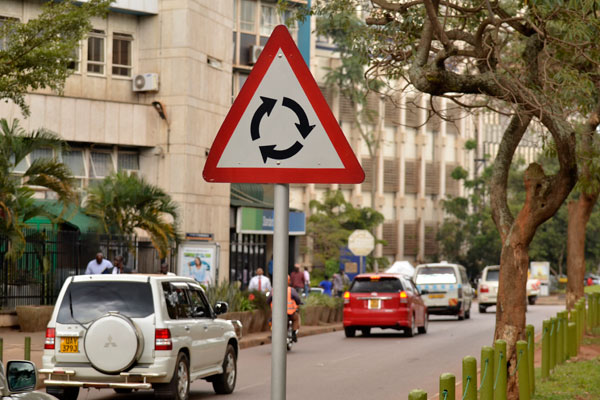The Ugandan Economy has all the ingredients for growth
The Ugandan economy has a lot of potential. Heavily reliant on agriculture, Uganda could easily be the food basket of Africa.
Endowed with fertile land and regular rainfall, agriculture is the most important sector of the economy that employs well above 80% of the country’s workforce. With more commercialized agriculture, economists will tell you that Uganda’s potential for agricultural produce is unrivaled in the sub-Saharan region.
The Ugandan economy has reaped the benefit of being a virtual market economy with little or no government interference – at least for the last 25 years which has seen it blossom as one of the fastest growing economies in the region.
Ever poised for rapid economic growth and development, the years gone by of political turmoil coupled with gross economic mismanagement left Uganda among the poorest economies.
In 1981, after the Idi Amin era, Uganda embarked on an economic recovery program that was boosted by substantial foreign assistance. But by 1984, erratic and overly expansionist fiscal and monetary policies and the gorilla war that engulfed the country at the time plunged the economy into decline.
Having said that, since 1986, with a new government coming into power, the Ugandan economy has been on the road to recovery with government taking on vital steps to rehabilitate and stabilize it.
The country’s infrastructure – particularly the transport and communication sector which was destroyed by the war and neglect has gradually been rebuilt.
With increased external support, in 1987, Uganda negotiated a policy framework with the International Monetary Fund (IMF) and the World Bank to implement economic policies designed to restore price stability and sustainable balance of payments, rehabilitate infrastructure, improve capacity utilization, restore produce incentives through proper price policies, and improve resource mobilisation and allocation in the public sector.
As a result, inflation that was sky rocketing at 240% in 1987 came down to 42% in 1992 and further down to 5.4% by 1996. By 2003, inflation had stabilised at 7.3%
The Ugandan economy greatly flourishes on agriculture with agricultural products accounting nearly for all Uganda’s foreign exchange earnings. Coffee in particular (of which Uganda is one of Africa’s leading producers) contributes about 27% of the country’s export. Hides, skins, vanilla, vegetables, fruits, flowers and fish continue to grow into reliable exports while cotton, tea and tobacco have continued to be foundations.
Into manufacturing and industry, most of products are related to agriculture. With improved incentives for production and export and the consistent upturn in Uganda’s export markets, the country has continued to experience a solid economic growth in the last 10/15 years. This has greatly boosted Ugandan business.
There has been steady investment into the manufacturing and industrial sector that has seen increased production of building and construction materials; cement, reinforcing rods, corrugated roofing sheets and paint, which have greatly enhanced the reconstruction of the other sectors of the economy. Beer, soap, sugar, cork and soft drinks are some of the domestically produced consumer goods.
There are prospects for the oil and gas sector after the discovery of oil in the western part of the country. And with the completion of the Bujagali hydro power project, Uganda’s energy generation potential shall be greatly enhanced.
Tourism has fast become one of the main sectors of the economy contributing nearly USD 600m by 2009/10. Uganda’s tourism attractions are up there with the very best you can find in the region.
The Ugandan economy has also enjoyed growth that has been driven by the massive investment into telecommunication, financial services and construction. China, Hong Kong, India, Singapore and United Arab Emirates are the major prospective emerging partners that have massively contributed to the country’s foreign direct investment.
The bulk of this foreign investment is directed to: finance, insurance and business services; manufacturing, wholesale, retail, catering, accommodation and tourism.
The recent down turn in the world market that affected nearly all corners of the globe- with Uganda no exception, has had its effect on the Ugandan economy.
The economy has experienced a decline in external demand for traditional exports, in particular coffee coupled with the global increase in oil prices which has led to the increase in consumer commodity prices (since they are greatly dependent on the transport sector for deliveries) and the fall of the Ugandan shilling to the US dollar.
But in spite of the decline, the regional demand for Uganda’s exports has remained high even with the Ugandan economy recording a weaker growth of 5.1% in 2010.
Sustained public investment in infrastructure and the global recovery should see the economy out of this slump with economic growth projected at 6.9% in 2012.
There is optimism as far as the Ugandan economy is concern in spite of the high world oil prices and the global financial crisis. The government is committed to see that the economy continues to recover.
















